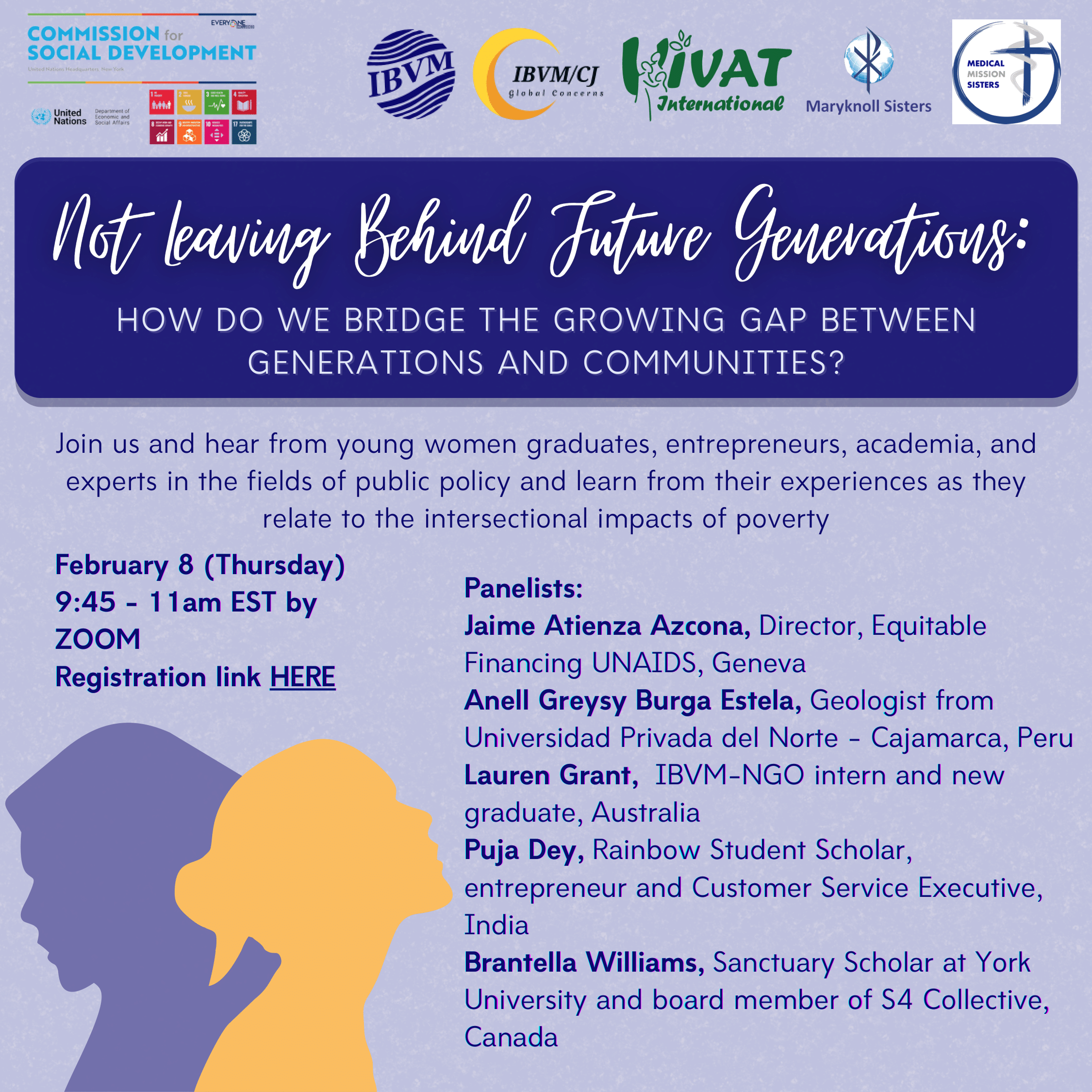
8th February 2024, CSocD62 Virtual Side Event organized by the Institute of the Blessed Virgin Mary - Loreto Generalate/Congregation of Jesus, Maryknoll Sisters of St. Dominic, VIVAT International and Medical Mission Sisters. This event was designed to facilitate meaningful dialogue surrounding poverty, as well as an opportunity to exchange policy ideas on how to meet the 2030 Sustainable Development Goal to eradicate poverty.
There were five panelists from around the world who generously shared their expertise, observations and experiences of poverty. The first panelist, Jaime Atienza Azcona, shed light on critical aspects of the current global financing landscape, emphasizing the urgent need for stronger cooperation to ensure economic and social justice. The second panelist, Anell Greys, presented on the underrepresentation of women in STEM in Peru and how this is correlated with lack of digital access and other inequalities. The third panelist, Lauren Grant, discussed what poverty looks like in Australia and how rising costs of living are having a larger impact on youth. The fourth panelist, Puja Dey, highlighted the connection between poverty and education with a significant proportion of women in India leaving school early for marriage. The final speaker, Brantella Williams, analyzed the intersectionality between poverty, displacement, and migration showcasing the urgent need for inclusive policies that address the systemic barriers faced by marginalized communities in Canada.
This range of diverse perspectives provided comprehensive insights into the challenges young people face, especially regarding poverty, gender inequality, and digital exclusion. Panelists highlighted pressing issues faced by the largest generation of young people globally and emphasized the need for inclusive policies rooted in social justice principles, underpinned by the pivotal role of education as a tool for breaking the cycle of poverty. These discussions on measuring poverty with intersectional concerns and addressing challenges like displacement, migration, rising living costs, and barriers to affordable housing provided thoughtful reflection.
For more information about the 62nd Commission for Social Development (CSocD62), please visit: https://social.desa.un.org/csocd/62nd
Source: Institute of the Blessed Virgin Mary - Loreto Generalate
 Welcome to the United Nations
Welcome to the United Nations